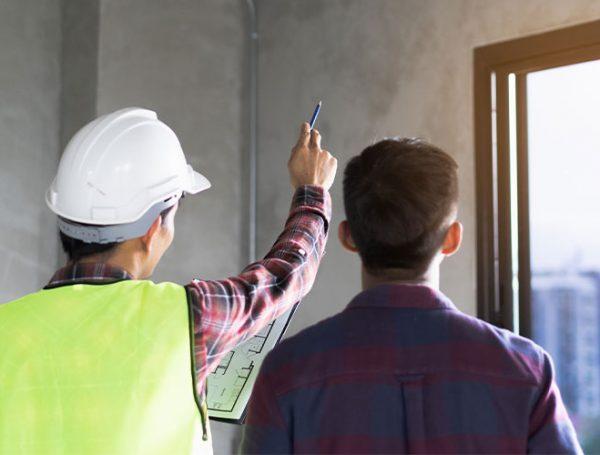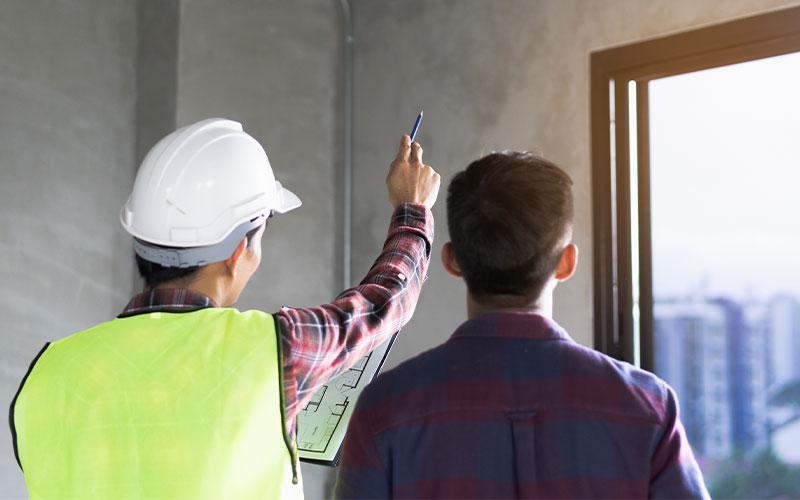What Is Required for A Final Building Inspection?
If you just bought a home, you are well aware of the rising nervousness that comes with the final inspection day. The critical day suddenly appears while you thought you had plenty of time left. Just what should you do?
What exactly are you meant to be checking off the list of things you need to do? Be at ease; in this post, we’ll explain all you need to know to confidently do your final inspection and provide you with a checklist you can use to make sure you don’t miss anything.
Hence, keep reading to learn how to properly execute a final inspection.

Final Inspection Checklist – Home Building Inspection
Building inspectors utilise a final inspection checklist to examine freshly built or renovated commercial and residential structures for adherence to building codes. To address safety concerns early, building inspectors might also decide to provide contractors with a final inspection checklist even before completing the final inspection.
This home settlement checklist is a reference to make sure all the important components of your property are examined, then examined again, before transfer. The list offers you a fair overall concept of the many features of a home that are worth investigating before it’s too late, even though some of the items on it might not apply to every property.
The list is longer than you may imagine. Yet if they aren’t in working condition from the start, all of these components of a house may be quite expensive to fix. On the final inspection day, you should carefully examine the following items for home building inspection:
- Hand shower and shower rose
- Hot water service
- Sink faucets
- Toilets
- Electric switchboard
- Telephone line
- Letterbox
- Lighting fixtures such as pendants
- Window treatments
- Oven
- Hob
- Stove
- Garbage cans
- Locks on the doors
- Taps and mixers for water
- Door knobs
- Ceiling lights
- Water filtration system plugs for sinks and basins tap spouts
- Washing machine and laundry tub
- Garage door opener
- Air conditioner
- Exhaust fans
- Windows
- Drapes
- Blinds
- Heating system
- Evaporate coolers
- Water pump
- A smoke alarms
- Landscape features
- Refrigerator
- Doorbell
- Any other objects that could have been regulated as a part of the sale, such as show furniture
What Is the Purpose of The Final Inspection Before Settlement?
If you’re wondering what a final building inspection entails or what it is, it is essentially a pre-settlement procedure when purchasers get the opportunity to inspect the property they intend to purchase and ensure that the seller has fulfilled their contractual responsibilities.
Buyers can schedule a which was before inspection with the seller or an agent after receiving the bank’s unconditional permission for home building inspection.
To ensure that nothing has changed since your first offer and that you aren’t entering into a dubious arrangement, you may use this opportunity to examine and check the property you put an offer on one final time.
It is crucial that you conduct the final inspection thoroughly since this serves as a form of insurance for you to ensure that you are not being taken advantage of. If not, you can run out of money or be in a challenging circumstance.
Does the house still have the same appearance and functionality as when you made an offer? You are often entitled to a last examination of the property before settlement; however, it is not required. It’s wise to try to get one.
To Ensure Safety and Security, Understand Building Inspections
You must first be aware of the potential consequences of failing to complete residential building inspections to appreciate their significance. The home itself could not be safe to live in, in addition to the potential for fines if the construction does not adhere to local building requirements.
A building undergoes many inspections throughout the construction process primarily to ensure the safety of the eventual occupants. Anybody who purchases the property runs the danger of getting hurt or worse if the structure is weak or the roof was improperly built.
By being aware of what these inspections include, you can ensure that the building process runs well and accounts for any potential problems before the inspection even takes place.
How To Effectively Perform Final Home Building Inspection
The building inspector must continue looking for breaches of the building code during the last inspection before occupancy, even though final inspections are only carried out when the property is 100% finished and all construction work has been completed.
A completely complying, occupied property must be ensured by the building inspector, who serves as the principal enforcer of safety. Building inspectors must, however, complete final inspections quickly since they sometimes must squeeze several inspections into a single day. Here are some pointers for carrying it out:
Prepare Your Documents in Advance
Review all available information, such as inspection history, which inspections have passed and which have failed, issues related to the project, and individual inspection records, before heading to the construction site. Building inspectors can save time by preparing these records in advance, and it may also help them find problems that earlier inspectors had overlooked.
Give the Contractor a Heads-Up
It’s best to notify the contractor in advance if a problem has been found so they can fix it before the final inspection. Notches, cuts, and penetrations in structural frame members as well as a lack of accessibility for safe egress are examples of code violations that can be reduced by letting the contractor know what the building inspector will be looking for during the final inspection.
Additional Factors to Evaluate Before Settlement
Home and belongings insurance must be set up as soon as a contract is signed. You are covered for the unexpected with insurance. Remember that insurance won’t pay for pre-existing conditions, of course. Your pre-purchase home building inspection is crucial because of this.
